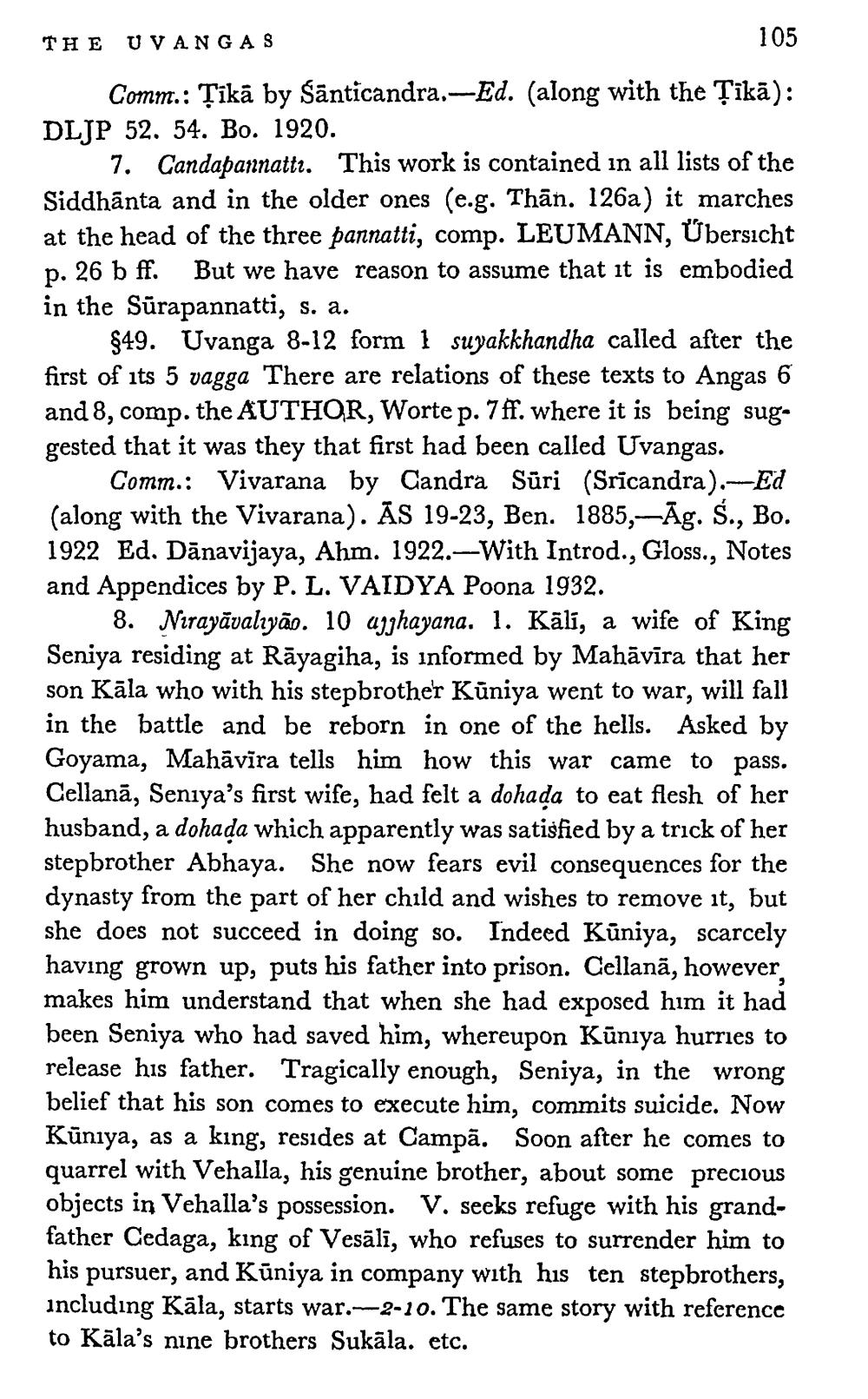________________
THE U VANGAS
105 Comm.: Tīkā by śānticandra.-Ed. (along with the Țikā): DLJP 52. 54. Bo. 1920.
7. Candapannattı. This work is contained in all lists of the Siddhānta and in the older ones (e.g. Thān. 126a) it marches at the head of the three pannatti, comp. LEUMANN, Übersicht p. 26 b ff. But we have reason to assume that it is embodied in the Sūrapannatti, s. a.
549. Uvanga 8-12 form 1 suyakkhandha called after the first of its 5 vagga There are relations of these texts to Angas 6 and 8, comp. the AUTHOR, Worte p. 7ff. where it is being suge gested that it was they that first had been called Uvangas.
Comm.: Vivarana by Candra Sūri (Sricandra).--Ed (along with the Vivarana). ĀS 19-23, Ben. 1885,-Āg. S., Bo. 1922 Ed. Dānavijaya, Ahm. 1922.-With Introd., Gloss., Notes and Appendices by P. L. VAIDYA Poona 1932.
8. Nirayāvaliyão. 10 ugghayana. 1. Kāli, a wife of King Seniya residing at Rāyagiha, is informed by Mahāvīra that her son Kāla who with his stepbrother Kūniya went to war, will fall in the battle and be reborn in one of the hells. Asked by Goyama, Mahāvīra tells him how this war came to pass. Cellanā, Senıya's first wife, had felt a dohada to eat flesh of her husband, a dohada which apparently was satisfied by a trick of her stepbrother Abhaya. She now fears evil consequences for the dynasty from the part of her child and wishes to remove it, but she does not succeed in doing so. Indeed Kūniya, scarcely having grown up, puts his father into prison. Cellanā, however, makes him understand that when she had exposed him it had been Seniya who had saved him, whereupon Kūniya hurries to release his father. Tragically enough, Seniya, in the wrong belief that his son comes to execute him, commits suicide. Now Kūniya, as a king, resides at Campā. Soon after he comes to quarrel with Vehalla, his genuine brother, about some precious objects in Vehalla's possession. V. seeks refuge with his grandfather Cedaga, king of Vesālī, who refuses to surrender him to his pursuer, and Kūniya in company with his ten stepbrothers, including Kāla, starts war.--2-10. The same story with reference to Kāla's nine brothers Sukāla. etc.




